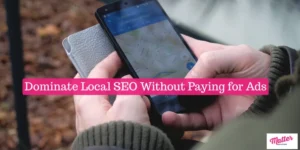Finding the right words to express your thoughts can make a world of difference in how your message is received. When it comes to phrases like “first come first serve,” using thoughtful alternatives can help convey warmth and understanding.
These alternatives not only maintain the core meaning but also add a personal touch, making your communication feel more engaging and considerate.
Let’s explore 50 alternatives that will enrich your vocabulary and help you connect more meaningfully with others.
What Does “First Come First Serve” Mean?
“First come first serve” is a phrase used to indicate that services, goods, or opportunities are given to those who arrive or request them first. It emphasizes the importance of promptness and fairness, as people are served in the order of their arrival.
When to Use “First Come First Serve”
This phrase is often used in service-oriented settings such as restaurants, events, or promotions. It signals to customers or participants that availability is limited and that they should act quickly to secure what they want. While it’s clear and direct, there are more empathetic alternatives that can enhance your communication.
Is It Professional/Polite to Say “First Come First Serve”?
While “first come first serve” is generally acceptable in professional contexts, it can sometimes come off as abrupt or impersonal. Using more considerate phrases can demonstrate your awareness of the feelings of others, enhancing the overall tone of your communication.
First Come First Serve synonyms
- First to Arrive, First to Be Served
- In the Order of Arrival
- Priority Given to Early Arrivals
- Limited Availability—Act Quickly!
- Be Among the First
- The Early Bird Gets the Worm
- First in Line, First to Serve
- First Come, First Choice
- Get Yours Before They’re Gone
- Grab It While You Can
- Limited Slots—Sign Up Early
- On a First-Arrive Basis
- The More Prompt, The Better
- First Come, First Served
- Secure Your Spot Early
- Come Early for the Best Selection
- Act Fast to Claim Your Spot
- Serve Order by Arrival
- Join Us Early for the Best Experience
- First Come, First Served with a Smile
- Arrive Early to Get the Goodies
- Be Quick to Claim Your Place
- On a First-Come Basis
- The Early Arrivals Get the Benefits
- Don’t Miss Out—Arrive Early!
- First to Arrive, First to Enjoy
- Promptness is Appreciated
- Early Registration Recommended
- Join Us First for Exclusive Access
- Seize the Opportunity Early
Professional and Polite Ways to Say “First Come, First Served”
In professional or formal communication, the phrase first come, first served can be reworded to sound more refined and courteous. Here are different ways to express this concept.
What Does “FCFS” Mean?
FCFS stands for First Come, First Served, a system where services, opportunities, or items are provided in the order people arrive or request them.
Professional Ways to Say “First Come, First Served” in an Email
When communicating this principle in a business or formal setting, consider these alternatives:
- Opportunities will be allocated on a priority basis.
- Spaces will be filled in order of registration.
- Access is granted in the order requests are received.
- Availability is based on early responses.
- Limited availability – assigned in order of request.
Nicer Ways to Say “First Come, First Served”
For a softer and more polite tone, try:
- Spots will be reserved on a priority basis.
- We encourage early responses to secure availability.
- Allocation will be handled in order of inquiry.
- Priority will be given to early participants.
Alternative Terms for “First Come, First Served”
Instead of repeating the same phrase, you can use:
- First-come, first-choice
- Early bird priority
- Priority registration applies
- Allocated as requests are received
How to Professionally Say “First Come, First Served” in Different Contexts
- Business Setting: Registrations will be processed in the order they are received.
- Event Invitation: Seating is limited and will be assigned on a first-come basis.
- Job or Scholarship Applications: Applications will be reviewed in the order they are submitted.
How to Professionally Say “Someone is an Asset to the Team”
Recognizing and appreciating a team member’s value can be done in a polished and professional way.
Meaning of “Asset to the Team”
Being an asset to the team means an individual significantly contributes to the team’s goals, success, and overall performance.
Professional Ways to Say “You Have Been a Great Asset to the Team”
To express appreciation in a formal way, try:
- Your contributions have been invaluable to our team.
- We truly appreciate your dedication and expertise.
- Your hard work and skills have strengthened our team immensely.
- We are grateful for the impact you have made.
Alternative Phrases for “Asset to the Team”
- A key contributor to our success
- A vital member of our team
- An indispensable colleague
- A cornerstone of our team’s achievements
- A highly valued team member
Another Way to Say “Great Addition to the Team”
When welcoming or acknowledging a new member, consider:
- A fantastic enhancement to our team
- An excellent new addition
- A wonderful complement to our group
- A strong contributor to our work
Other Ways to Say “Valuable Asset to the Team”
- An irreplaceable member of our organization
- A trusted and respected team player
- A powerhouse of talent and dedication
- An essential part of our operations
1. First to Arrive, First to Be Served
Meaning: This phrase communicates that the order of service is based on who arrives first. Definition: A straightforward way of expressing the priority of service based on arrival time. Explanation: It emphasizes the fairness of the process while being more conversational. Example: “We have a limited number of seats available, so it’s first to arrive, first to be served.” Tone: Friendly and clear.
2. In the Order of Arrival
Meaning: Indicates that services will be provided based on the sequence of arrival. Definition: A formal way to state that priority is based on arrival time. Explanation: This phrase is more neutral and suits professional environments well. Example: “Participants will be admitted in the order of arrival.” Tone: Neutral and professional.
3. Priority Given to Early Arrivals
Meaning: Suggests that those who arrive earlier will receive preferential treatment. Definition: A phrase highlighting that early participants will be prioritized. Explanation: This is a polite way to communicate the same message, showing appreciation for promptness. Example: “Priority is given to early arrivals for this workshop.” Tone: Respectful and encouraging.
4. Limited Availability—Act Quickly!
Meaning: Urges individuals to act fast due to limited spots or resources. Definition: A motivating phrase indicating urgency and scarcity. Explanation: It encourages prompt action while remaining friendly. Example: “We have limited availability—act quickly to secure your spot!” Tone: Urgent yet warm.
5. Be Among the First
Meaning: Invites people to arrive early for the best chance of being served. Definition: A friendly suggestion to arrive early. Explanation: It implies inclusivity and encourages participation without pressure. Example: “Come early to be among the first to enjoy our specials.” Tone: Inviting and warm.
6. The Early Bird Gets the Worm
Meaning: A saying that emphasizes the advantage of being early. Definition: A metaphorical expression highlighting the benefits of promptness. Explanation: This phrase adds a light-hearted touch while conveying the same meaning. Example: “Remember, the early bird gets the worm when it comes to our sales.” Tone: Cheerful and encouraging.
7. First in Line, First to Serve
Meaning: Implies that the first person in line will be served first. Definition: A direct way to express the order of service based on queuing. Explanation: This phrase can be used in casual or formal settings. Example: “Customers will be first in line, first to serve for the new product.” Tone: Straightforward and clear.
8. First Come, First Choice
Meaning: Indicates that the first arrivals will have the first selection of options. Definition: A variation of the original phrase emphasizing choice. Explanation: It highlights not just service but the freedom of selection, adding a positive spin. Example: “It’s first come, first choice for these exclusive items.” Tone: Positive and engaging.
9. Get Yours Before They’re Gone
Meaning: Urges individuals to claim their items or services quickly. Definition: A casual expression that emphasizes urgency. Explanation: This phrase makes the communication feel more personal and caring. Example: “Don’t miss out! Get yours before they’re gone.” Tone: Urgent and friendly.
10. Grab It While You Can
Meaning: Encourages swift action to obtain an item or service. Definition: An informal phrase highlighting urgency. Explanation: This creates a sense of urgency while remaining approachable. Example: “This offer won’t last long, so grab it while you can!” Tone: Friendly and motivating.
11. Limited Slots—Sign Up Early
Meaning: Indicates that there are few openings available and encourages early sign-up. Definition: A clear call to action emphasizing limited availability. Explanation: This phrase balances professionalism and warmth. Example: “There are only a few spots left—sign up early!” Tone: Encouraging and polite.
12. On a First-Arrive Basis
Meaning: Similar to the original phrase but with a softer tone. Definition: A formal way to communicate service order. Explanation: It maintains the essence of the original phrase while being less direct. Example: “Services will be provided on a first-arrive basis.” Tone: Professional and considerate.
13. The More Prompt, The Better
Meaning: Suggests that being prompt leads to better outcomes. Definition: A motivational statement encouraging promptness. Explanation: This phrase is encouraging and promotes action. Example: “Join us soon—the more prompt, the better the experience!” Tone: Uplifting and positive.
14. First in, First Served
Meaning: Indicates that the first arrivals will be the first served. Definition: A slight twist on the original phrase, still conveying the same message. Explanation: This variation adds a conversational tone. Example: “We have limited seating, so it’s first in, first served.” Tone: Friendly and casual.
15. Secure Your Spot Early
Meaning: Encourages individuals to claim their position ahead of time. Definition: A proactive statement that encourages early action. Explanation: This phrase is inviting and creates a sense of urgency. Example: “To enjoy our exclusive event, secure your spot early!” Tone: Warm and inviting.
16. Come Early for the Best Selection
Meaning: Suggests that arriving early provides more options. Definition: An encouraging phrase promoting early attendance. Explanation: This conveys a sense of value and encourages promptness. Example: “Come early for the best selection of our seasonal items!” Tone: Encouraging and positive.
17. Act Fast to Claim Your Spot
Meaning: Motivates individuals to take quick action. Definition: A call to action emphasizing the need for promptness. Explanation: This phrase feels energetic and engaging. Example: “We have limited tickets available, so act fast to claim your spot!” Tone: Urgent and motivating.
18. Serve Order by Arrival
Meaning: Describes the process of serving individuals based on when they arrive. Definition: A more formal description of service order. Explanation: This phrase is suitable for professional contexts. Example: “We will serve order by arrival for this event.” Tone: Professional and clear.
19. Join Us Early for the Best Experience
Meaning: Encourages individuals to attend early for a better experience. Definition: A warm invitation promoting early attendance. Explanation: This phrase is supportive and enhances the sense of community. Example: “Join us early for the best experience at our festival!” Tone: Warm and welcoming.
20. First Come, First Served with a Smile
Meaning: Adds a personal touch, indicating warmth in the service. Definition: A friendly twist on the original phrase. Explanation: This phrase softens the communication, making it feel more inviting. Example: “We’ll be first come, first served with a smile!” Tone: Friendly and approachable.
21. Arrive Early to Get the Goodies
Meaning: Implies that arriving early will yield better rewards. Definition: A playful way to encourage promptness. Explanation: This makes the idea of arriving early more appealing. Example: “Arrive early to get the goodies at our sale!” Tone: Fun and engaging.
22. Be Quick to Claim Your Place
Meaning: Encourages prompt action to secure a spot. Definition: A motivating phrase emphasizing urgency. Explanation: This adds a sense of enthusiasm to the invitation. Example: “Be quick to claim your place at the dinner table!” Tone: Energetic and lively.
23. On a First-Come Basis
Meaning: Indicates service will follow the order of arrival. Definition: A formal variant of the original phrase. Explanation: This is clear and professional, suitable for many contexts. Example: “Services are provided on a first-come basis.” Tone: Professional and straightforward.
24. The Early Arrivals Get the Benefits
Meaning: Suggests that those who arrive early will gain advantages. Definition: A positive twist promoting the benefits of early attendance. Explanation: This adds a sense of incentive to promptness. Example: “The early arrivals get the benefits of our new items!” Tone: Positive and encouraging.
25. Don’t Miss Out—Arrive Early!
Meaning: Urges individuals to come early to avoid missing an opportunity. Definition: A motivating reminder about the importance of promptness. Explanation: This phrase feels supportive and engaging. Example: “Don’t miss out—arrive early! We’d love to see you there.” Tone: Friendly and enthusiastic.
26. First to Arrive, First to Enjoy
Meaning: Suggests that the first arrivals will have the most enjoyment. Definition: A cheerful invitation to be prompt. Explanation: This creates excitement around early attendance. Example: “First to arrive, first to enjoy our delicious buffet!” Tone: Cheerful and inviting.
27. Promptness is Appreciated
Meaning: Indicates that being on time is valued. Definition: A gentle reminder that encourages promptness. Explanation: This phrase is polite and respectful, suitable for formal settings. Example: “We appreciate your participation; promptness is appreciated.” Tone: Respectful and polite.
28. Early Registration Recommended
Meaning: Suggests that registering early is advisable. Definition: A professional recommendation for timely registration. Explanation: This is clear and appropriate for formal communications. Example: “Early registration recommended for our upcoming seminar.” Tone: Professional and informative.
29. Join Us First for Exclusive Access
Meaning: Encourages early participation for special privileges. Definition: An inviting way to promote early attendance. Explanation: This highlights exclusivity and adds value to arriving early. Example: “Join us first for exclusive access to the new collection.” Tone: Engaging and appealing.
30. Seize the Opportunity Early
Meaning: Encourages individuals to take advantage of opportunities promptly. Definition: A motivational phrase promoting early action. Explanation: This phrase feels supportive and empowering. Example: “Seize the opportunity early for a chance to win!” Tone: Encouraging and uplifting.
Final Words:
Finding the right words to convey your messages can make your communication feel more personal and engaging. The alternatives to “first come first serve” offer a variety of tones and contexts, allowing you to express warmth and care in your interactions.
Whether in professional settings or casual conversations, these phrases can enrich your vocabulary and enhance your communication.
Recent Posts
- 30 Other Ways to Say ‘How Was Your Day’ (With Examples)
- 30 Other Ways to Say ‘Welcome Home’ (With Examples)
- 30 Other Ways to Say “Happy Monday” (With Examples)
- 30 Other Ways to Say “I’m Proud of You” (With Examples)
- 30 Other Ways to Say “Happy 4th of July” (With Examples)

Noah White is a seasoned writer and the visionary behind LexiQuester, a hub for exploring the magic of language and storytelling. With a flair for weaving words into captivating narratives, he seeks to ignite curiosity in readers. When not writing, Noah enjoys delving into literature and uncovering linguistic treasures.














